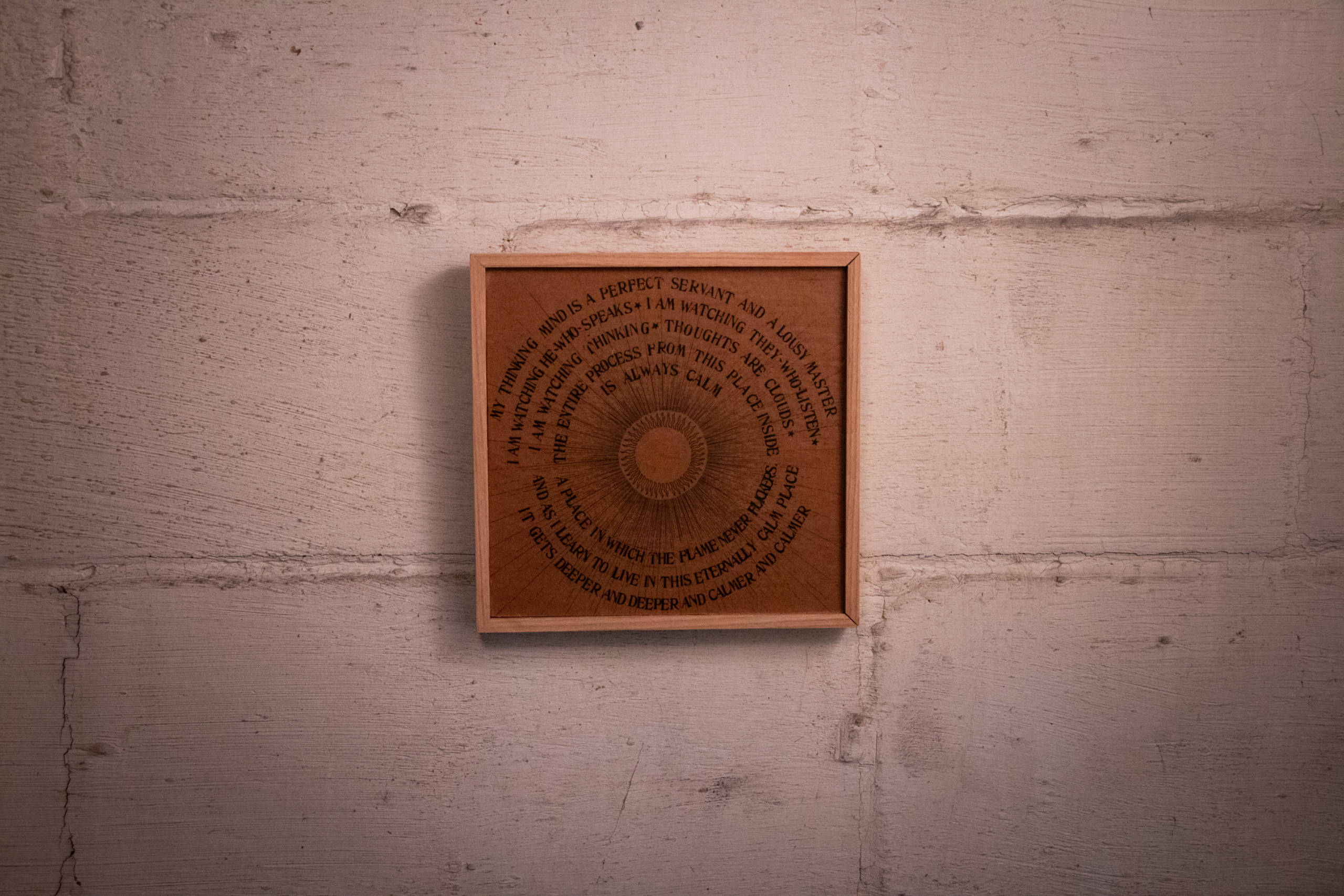Page 89 Text
My thinking mind is a perfect servant and a lousy master
I am watching he-who-speaks.
I am watching they-who-listen
I am watching thinking
Thoughts are clouds
The entire process from this place inside is always calm
A place in which the flame never flickers
And as I learn to live in this eternally calm place
It gets deeper and deeper and calmer and calmer
And wiser and wiser
And lighter and lighter
And I am more love and I become more and more like the sun
Just the process of calming, centering, centering, calming
Extricating myself from the Drama
So long as one feels that he is the doer he cannot escape from the wheel of births and deaths
This does not mean that I am lying in bed doing nothing
That’s drama
As much as this book is drama
Commentary
Alan Watts often discusses the proscenium arch, which frames a stage in a theater. It serves as a delineation between what is decidedly real and what everyone agrees is just a performance. The text of this page not only begs the question, “Which side of the arch am I actually on? “but also, “Do I exist on multiple sides of the arch at the same time?”
Determining what is “real” is a core philosophical question. Descartes set the standard for the western world: “Cogito, ergo sum;” I think, therefore I am. I know that “I” am real because I hear my logical mind and can use it to control my environment. Eastern philosophy’s point of view does not have such a concise saying but can be understood by modifying Descartes’ statement to “I am, and I think.” Our logical minds are just a part of us; the true “I” is awareness. Nondualism places our logical minds decidedly behind the proscenium arch acting out the play (Lila in Hinduism). Our awareness sits in the audience, taking it all in.
The logical mind can be considered a ‘yogic power’ or a Siddhi with the proper perspective. It is a capability that enables us to do more in the world. However, it is so helpful and powerful that without the perspective of the larger awareness, it can take over and convince itself that it’s entirely in charge. Most Eastern philosophies suggest that it does not need to be that way. ‘Listening to our Dharma,’ a term from Hinduism and Buddhism, refers to one’s life duty or moral responsibility that needs to be found outside of the logical mind, while ‘following the Tao,’ a concept from Taoism, means living in harmony with the natural order. Not trying to control the river’s flow but learning how to flow with it. Each saying reminds us that there is something larger than the logical mind, pointing us to awareness as the highest level of ‘I.’ We should not become entranced by the entertaining performance behind the arch, forgetting we are actually the audience.
Ram Dass often frames the problem as “Drama.” The things we do that suck us in and convince us that the logical mind is in charge. These are things that are either so comforting we choose to forget or so enthralling that we are compelled to. In Karma Yoga, this “drama” is the work. When we have successfully identified with the awareness, we still respect that the world is still happening before us. We then can choose to use the “drama” that the logical mind experiences as a reminder of our true self rather than losing ourselves in the drama. The Lila before us becomes the method.


